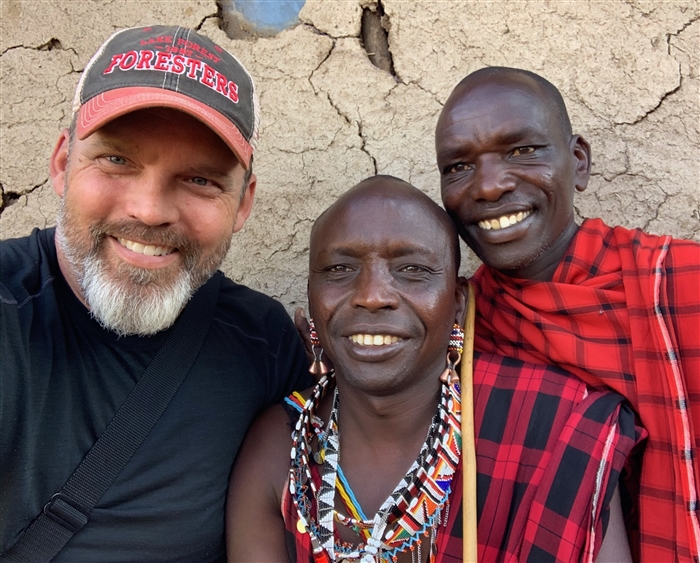Todd Beer study on conservation, gender equality, and education published
 Associate Professor Todd Beer and Maasai community members that helped translate interviews, Jacob Parit Ole Noomek (center) and Julius Seleca (right). Photo by Todd Beer
Associate Professor Todd Beer and Maasai community members that helped translate interviews, Jacob Parit Ole Noomek (center) and Julius Seleca (right). Photo by Todd Beer
Associate Professor and Chair of the Sociology and Anthropology Department Todd Beer, recently published a peer-reviewed research article in The Sociological Quarterly, the official journal of the Midwest Sociological Society.
“The Interaction and Amplification of World Society Norms: A Case Study of Environmental Conservation, Gender Equality, and Formal Education” examines the interaction of global cultural scripts in a rural Maasai area of southern Kenya.
Beer collected the data during his last research sabbatical. “Most research in this subfield of sociology analyzes the global diffusion and adoption of a single global norm, one at a time, but that is not how people experience culture, global or otherwise,” Beer said. “My research shows that, at least in this initial case study, the global norms of environmental conservation, gender equality, and formal education as a pathway to development mostly amplify each other,” notes Beer.
“My research shows that…the global norms of environmental conservation, gender equality, and formal education as a pathway to development mostly amplify each other.”
For example, his research documented that as this community embraces environmental conservation and stops killing lions that threaten their livestock, they are better able to afford to send all their children, even girls, to school. This is because the government gives the community scholarships for secondary school from the gate fees of the adjacent national park (where the lions roam beyond its boundaries).
Additionally, Beer found formal school serves as a path to amplify many global norms. In schools today, even in seemingly remote areas of the world, the curriculum is global. Students learn about environmental conservation; girls learn about their right to say no to early marriage or female genital circumcision. This work contributes to the field by showing that in order to truly understand the scope of influence of world society, sociologists need to examine the cultural context with more complexity than they have thus far.
Beer also conducts research in Kenya examining how International NGOs influence Kenyan Environmental NGOs, and how civil society actors throughout the continent are addressing climate change and how they perceive climate justice. However, his next article will examine how climate change protestors in the US view eco-socialist and degrowth policies to address the crisis of climate change. This survey data was collected in New York City with the help of a Lake Forest College alum.

